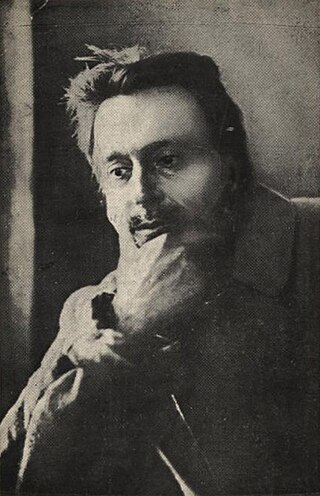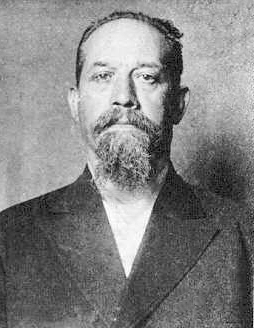Anarchism is a political philosophy and movement that is against all forms of authority and seeks to abolish the institutions it claims maintain unnecessary coercion and hierarchy, typically including the state and capitalism. Anarchism advocates for the replacement of the state with stateless societies and voluntary free associations. As a historically left-wing movement, this reading of anarchism is placed on the farthest left of the political spectrum, usually described as the libertarian wing of the socialist movement.
Libertarian socialism is an anti-authoritarian and anti-capitalist political current that emphasises self-governance and workers' self-management. It is contrasted from other forms of socialism by its rejection of state ownership and from other forms of libertarianism by its rejection of private property. Broadly defined, it includes schools of both anarchism and Marxism, as well as other tendencies that oppose the state and capitalism.
Anarchism and violence have been linked together by events in anarchist history such as violent revolution, terrorism, assassination attempts and propaganda of the deed. Propaganda of the deed, or attentát, was espoused by leading anarchists in the late 19th century and was associated with a number of incidents of political violence. Anarchist thought, however, is quite diverse on the question of violence. Where some anarchists have opposed coercive means on the basis of coherence, others have supported acts of violent revolution as a path toward anarchy. Anarcho-pacifism is a school of thought within anarchism which rejects all violence.
Anarcho-pacifism, also referred to as anarchist pacifism and pacifist anarchism, is an anarchist school of thought that advocates for the use of peaceful, non-violent forms of resistance in the struggle for social change. Anarcho-pacifism rejects the principle of violence which is seen as a form of power and therefore as contradictory to key anarchist ideals such as the rejection of hierarchy and dominance. Many anarcho-pacifists are also Christian anarchists, who reject war and the use of violence.
Anarcha-feminism, also known as anarchist feminism or anarcho-feminism, is a system of analysis which combines the principles and power analysis of anarchist theory with feminism. It closely resembles intersectional feminism. Anarcha-feminism generally posits that patriarchy and traditional gender roles as manifestations of involuntary coercive hierarchy should be replaced by decentralized free association. Anarcha-feminists believe that the struggle against patriarchy is an essential part of class conflict and the anarchist struggle against the state and capitalism. In essence, the philosophy sees anarchist struggle as a necessary component of feminist struggle and vice versa. L. Susan Brown claims that "as anarchism is a political philosophy that opposes all relationships of power, it is inherently feminist".
According to different scholars, the history of anarchism either goes back to ancient and prehistoric ideologies and social structures, or begins in the 19th century as a formal movement. As scholars and anarchist philosophers have held a range of views on what anarchism means, it is difficult to outline its history unambiguously. Some feel anarchism is a distinct, well-defined movement stemming from 19th-century class conflict, while others identify anarchist traits long before the earliest civilisations existed.

Lev Chernyi was a Russian individualist anarchist theorist, activist and poet, and a leading figure of the Third Russian Revolution. In 1917, Chernyi was released from his political imprisonment by the Imperial Russian regime, and swiftly became one of the leading figures in Russian anarchism. After strongly denouncing the new Bolshevik government in various anarchist publications and joining several underground resistance movements, Chernyi was arrested by the Cheka on a charge of counterfeiting and in 1921 was executed without trial.

Luigi Galleani was an Italian insurrectionary anarchist best known for his advocacy of "propaganda of the deed", a strategy of political assassinations and violent attacks.
Leaderless resistance, or phantom cell structure, is a social resistance strategy in which small, independent groups, or individuals, challenge an established institution such as a law, economic system, social order, or government. Leaderless resistance can encompass anything from non-violent protest and civil disobedience to vandalism, terrorism, and other violent activity.
Anarchism in the United States began in the mid-19th century and started to grow in influence as it entered the American labor movements, growing an anarcho-communist current as well as gaining notoriety for violent propaganda of the deed and campaigning for diverse social reforms in the early 20th century. By around the start of the 20th century, the heyday of individualist anarchism had passed and anarcho-communism and other social anarchist currents emerged as the dominant anarchist tendency.
Anarchism and nationalism both emerged in Europe following the French Revolution of 1789 and have a long and durable relationship going back at least to Mikhail Bakunin and his involvement with the pan-Slavic movement prior to his conversion to anarchism. There has been a long history of anarchist involvement with nationalism all over the world as well as with internationalism.

Anarchism in Australia arrived within a few years of anarchism developing as a distinct tendency in the wake of the 1871 Paris Commune. Although a minor school of thought and politics, composed primarily of campaigners and intellectuals, Australian anarchism has formed a significant current throughout the history and literature of the colonies and nation. Anarchism's influence has been industrial and cultural, though its influence has waned from its high point in the early 20th century where anarchist techniques and ideas deeply influenced the official Australian union movement. In the mid 20th century anarchism's influence was primarily restricted to urban bohemian cultural movements. In the late 20th century and early 21st century Australian anarchism has been an element in Australia's social justice and protest movements.
New diplomacy is international relations in which citizens play a greater role. Under the old diplomacy, global policymaking was more strictly the purview of governments. New diplomacy began to be observed in the 1990s amidst easing tensions in the wake of the Cold War and streamlined communication among activists in the burgeoning Internet age. New diplomacy is being used to address many issues such as human rights, humanitarian assistance, labor rights, environmental issues, and fair trade. Carne Ross, who resigned from the British Foreign Office following his country's participation in the 2003 invasion of Iraq, wrote about this phenomenon in his book, Independent Diplomat.
Contemporary anarchism within the history of anarchism is the period of the anarchist movement continuing from the end of World War II and into the present. Since the last third of the 20th century, anarchists have been involved in anti-globalisation, peace, squatter and student protest movements. Anarchists have participated in armed revolutions such as in those that created the Makhnovshchina and Revolutionary Catalonia, and anarchist political organizations such as the International Workers' Association and the Industrial Workers of the World have existed since the 20th century. Within contemporary anarchism, the anti-capitalism of classical anarchism has remained prominent.

Total liberation, also referred to as total liberation ecology or veganarchism, is a political philosophy and movement that combines anarchism with a commitment to animal and earth liberation. Whilst more traditional approaches to anarchism have often focused primarily on opposing the state and capitalism, total liberation is additionally concerned with opposing all additional forms of human oppression as well as the oppression of other animals and ecosystems. Proponents of total liberation typically espouse a holistic and intersectional approach aimed at using direct action to dismantle all forms of domination and hierarchy, common examples of which include the state, capitalism, patriarchy, racism, heterosexism, cissexism, disablism, ageism, speciesism, and ecological domination.
Independent Diplomat is a non-profit non-governmental organisation founded in 2004 by British former diplomat Carne Ross to give advice and assistance in diplomatic strategy and technique to governments and political groups. It provides diplomatic advice to unrecognised governments and small nations, and works towards greater participation in diplomatic forums.
Insurrectionary anarchism is a revolutionary theory and tendency within the anarchist movement that emphasizes insurrection as a revolutionary practice. It is critical of formal organizations such as labor unions and federations that are based on a political program and periodic congresses. Instead, insurrectionary anarchists advocate informal organization and small affinity group based organization. Insurrectionary anarchists put value in attack, permanent class conflict and a refusal to negotiate or compromise with class enemies.
Anarchist archives preserve records from the international anarchist movement in personal and institutional collections around the world. This primary source documentation is made available for researchers to learn directly from movement anarchists, both their ideas and lives.
Prior to the rise of anarchism as an anti-authoritarian political philosophy in the 19th century, both individuals and groups expressed some principles of anarchism in their lives and writings.
Anarchism in Malaysia arose from the revolutionary activities of Chinese immigrants in British Malaya, who were the first to construct an organized anarchist movement in the country, reaching its peak during the 1920s. After a campaign of repression by the British authorities, anarchism was supplanted by Bolshevism as the leading revolutionary current, until the resurgence of the anarchist movement during the 1980s, as part of the Malaysian punk scene.




